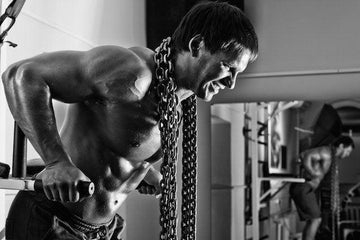

Enhance Muscle Mass and Recuperation
Table of Contents
Enhance Muscle Mass and Recuperation
There are over 300 important bodily functions that are dependent on magnesium, but the most important for performance is energy production. Magnesium is a crucial mineral in human metabolism and found in small amounts in many vegetables (especially green leafy ones), nuts and seeds, and legumes. Currently, 57% of the US population is not getting the US RDA of magnesium. Magnesium deficiency has proved capable of impairing exercise capacity and reducing physical performance. It is also associated with an increased inflammatory state, muscle cell alterations attributable to increased oxidative stress, and impaired intracellular calcium homeostasis.
Magnesium plays both a direct and indirect role in the body’s physiological response to exercise conditions. Exercise increases production of both sweat and urine, and thus loss of electrolytes including magnesium, but the body’s magnesium stores become redistributed to meet the increased muscle metabolism needs. Because of increased energy needs during exercise and sports, low magnesium levels limit performance. Both avenues of increasing ATP production are entirely dependent on magnesium. Magnesium is required to make new mitochondria and to repair existing mitochondria. Low levels of damaged mitochondria mean low levels of ATP, leading to poor performance and recovery.
Low Magnesium Hinders Muscle Performance
Magnesium is not only necessary for overall health but also for increased strength. Researchers investigated the effects of dietary magnesium (Mg) on strength development during a double-blind, 7-week strength training program in 26 subjects, 18-30 years old. Subjects’ 3-day diet records were analyzed and Mg content was calculated. Subjects received either a placebo or magnesium supplementation. Pre and post quadriceps strength was also investigated. Each subject performed three sets of 10 reps, leg press, and leg extension, three times/week. At the end of the study, both groups gained strength, however, results indicated significant increase for the Magnesium group compared to the Control group in absolute strength.
Magnesium is also necessary for energy metabolism and physical performance and new research shows that taking it increases testosterone levels. A 2011 study tested a group of sedentary men who received 10 mg of magnesium per kilogram of body weight a day (Group 1), a group of male tae kwon do athletes taking the same magnesium protocol daily (Group 2), and a group of tae kwon do athletes who did not take magnesium (Group 3). The active athlete who exercised and took magnesium had the greatest increases in testosterone levels after tae kwon do practice, followed by the group of athletes who exercised and took no magnesium, while sedentary adults taking magnesium had the lowest levels (no practice or exercise), indicating that magnesium supplementation raises testosterone levels when combined with exercise. This suggests magnesium in conjunction with exercise has a synergistic effect with testosterone.
Magnesium Increases Testosterone and IGF-1

Studies have also shown that magnesium intake affects the secretion of total IGF-1 and increase testosterone bioactivity. This observation suggests that magnesium can be a modulator of the anabolic mineral for many men. One study examined 399 make subjects (≥65-year-old) with complete data on testosterone, total IGF-1, sex hormone binding globulin (SHBG), dehydroepiandrosterone sulphate (DHEAS) and serum magnesium levels. When the researchers examined the blood samples of the men, after adjusting for age, magnesium was positively associated with total testosterone and with total IGF-1. This means that higher levels of blood magnesium levels were associated with greater testosterone and IGF-1 levels.
Maggio M, Ceda GP, Lauretani F, Cattabiani C, Avantaggiato E, Morganti S, Ablondi F, Bandinelli S, Dominguez LJ, Barbagallo M, Paolisso G, Semba RD, Ferrucci L. Magnesium and anabolic hormones in older men. Int J Androl. 2011 Dec;34(6 Pt 2):e594-600.
Pitkin, Luke William. “The effect of magnesium supplementation on high and low dietary magnesium intake on resting, during and recovering from exercise on blood pressure, performance and serum levels of magnesium (Mg2+).” (2014)

















